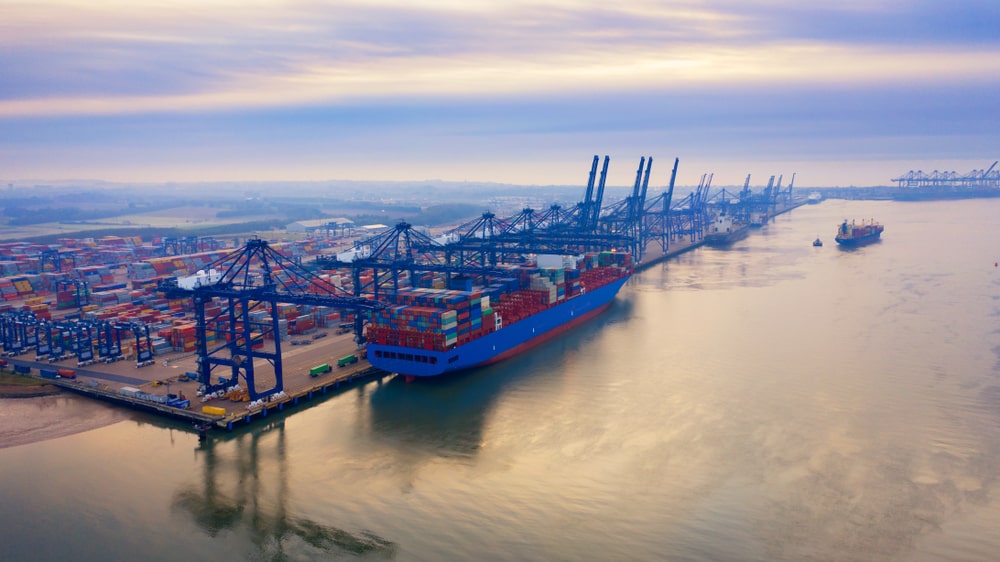
A handful of the UK PLC household names are exposed to hundreds of millions of pounds of supply chain exposure in the run up to Christmas – and (hard or soft) Brexit – all at the key port of Felixstowe on the Suffolk coast of England.
Retail giants and engineering behemoths such as Asda, John Lewis, Tesco and Rolls-Royce face substantial trade exposure caused by current disruption at the port, according to Russell Group data.
The port, which is suffering a logistical logjam due to oversubscription in delivery slots, has created supply chain headaches for British companies in the run up to Christmas, adding to the current woes caused by the pandemic. Also, there is a possibility of a "Hard Brexit" on the horizon too.
Russell analysed the companies that import and export $9 billion of annual trade through Felixstowe, which is a vital artery of the British economy.
The leading company importers (and their exposure) into the port of Felixstowe are:
1. Asda ($433 million)
2. John Lewis ($326 million)
3. Tesco ($294 million)
4. Marks and Spencer ($281 million)
5. Capri Holdings ($241 million)
6. Electrocomponents PLC ($217 million)
7. Chanel ($171 million)
8. APTIV ($141 million)
9. Burberry Group ($137 million)
10. Jaguar Land Rover ($133 million)
Meanwhile, the leading company exporters (and their exposure) from the port of Felixstowe are:
1. Rolls-Royce ($214 million)
2. Diageo ($111 million)
3. Bodycote ($64 million)
4. GlaxoSmithKline ($27 million)
5. Kaz Minerals ($19 million)
6. B.E Wedge Holdings ($15 million)
7. JCB ($13 million)
8. Unilever ($12 million)
9. APTIV ($11 million)
10. Chivas Brothers ($11 million)
Russell Group CEO Suki Basi commented on the release of the figures, "The large exposure of many leading British companies from the disruption at Felixstowe is real-time example of ‘Connected Trading Risk Exposure’. For the disruption at the port creates ripple effects across the economy, from supply chain disruption for organisations through to potential higher prices for UK consumers.
"While the current pandemic has rightly forced many organisations to reassess their current risk management techniques, these figures, in our view, show that any effective risk mitigation plan needs to have a Connected Trading Risk Exposure strategy at the heart of it".